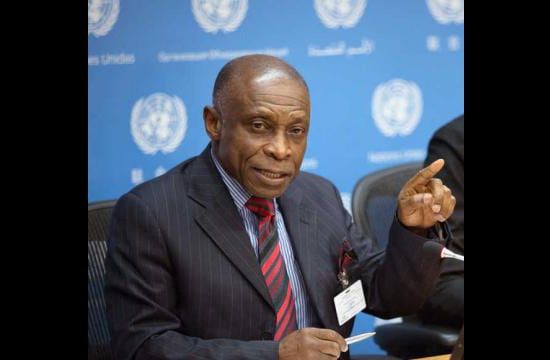Guyana’s Foreign Affairs Minister Carl Greenidge has described as significant, the decision taken by the United States of America to stand behind Guyana on the controversy with neighbouring Venezuela.
At a farewell reception for US Ambassador Perry Holloway on Friday last, the US Embassy in Guyana officially announced the shift in position on the controversy.
“Previously, we had simply supported the timely resolution of the Venezuela-Guyana border controversy. In large measure because of Ambassador Holloway, the US government now calls on all parties to respect the 1899 arbitration decision,” announced Deputy Chief of Mission, Terry Steers-Gonzalez.
Mr. Greenidge interprets this as a clear and unequivocal position on the standing of an international Treaty.
“In the current climate of uncertainty and chaos in international relations it is a heartening and refreshing stance by the USA in defence of the rule of law,” he told OilNOW in an invited comment.
While some have argued that the US is losing its global influence, it remains one of the leading global players and its support carries much weight in international relations. More significantly, the US’ involvement in the early stages of the dispute validates this announcement.
“Because the USA was a key player in the call for international arbitration as a means of resolving the original dispute, we are pleased to see the State Department put their moral and diplomatic weight behind the outcome of the process which Venezuela defended and embraced for some 63 years,” the Foreign Minister expressed.
The US, led by President Grover Cleveland, was instrumental in ‘persuading’ the Government of Great Britain and Ireland to agree to arbitration in 1897; which is reflected in the Treaty of Washington.
As such, Guyana thinks that the announcement “helps to confirm to the world that all of the other parties to the resolution of the dispute in 1899 – Great Britain and the USA – now regard Venezuela’s assertions,voiced by successive governments, as unacceptable and fabricated.”
The announcement by the US came days before Guyana makes a submission to the International Court of Justice on its jurisdiction to hear the case; after decades of failed mediation through the Good Offices process.
On Guyana’s request the matter was forwarded to the ICJ for finality, although Venezuela has refused to participate, saying the court lacks jurisdiction.
Implications for Oil and Gas
Venezuela’s claim to the entire Essequibo region expanded to Guyana’s territorial waters in the Atlantic Ocean after the discovery of oil by US oil major ExxonMobil. The new claim now includes a huge part of the Stabroek Block where more than 4 billion barrels of recoverable oil have been found.
Former Guyanese Natural Resources Minister, Robert Persaud also sees this new stance by the US as instrumental in ensuring energy security. “This clarification of the US’ position clearly demonstrates the fact that the US and the Caribbean’s energy security is intrinsically linked to a peaceful, and smooth functioning oil and gas sector in Guyana,” he told OilNOW on Sunday.
He believes that it is also a good sign for the continued development of hydro-carbons and pursuit of other potential opportunities offshore and onshore in Guyana.
“The presence and discoveries by ExxonMobil would have logically informed a less nuanced US position. This is more beneficial for Guyana than for ExxonMobil or any other Oil and Gas operator. It has always been strategic to have US-owned and US-based companies, as part of the mix, in the exploration and development of our offshore hydrocarbons,” Persaud told OilNOW.
This view has been shared my members of both the current and previous administrations who have pointed to the strategic value of granting a US company access to the entire 6.6 million acres Stabroek Block which stretches to both the Venezuela and Suriname maritime boundaries. This is particularly relevant in the context of aggression shown in the past by both countries in pursuit of claims to Guyana’s maritime space.




